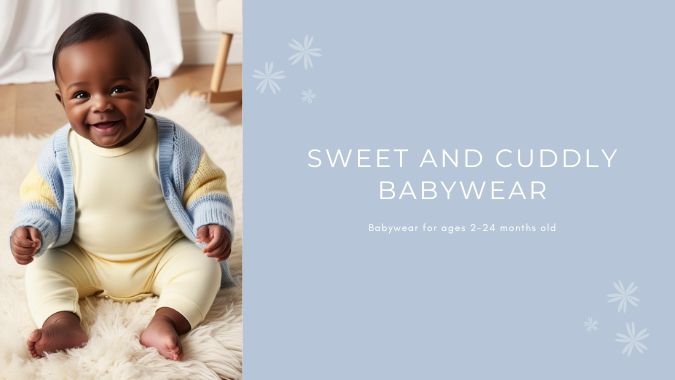Executive Summary
Little Ones Babywear Manufacturing is a small-scale business based in Cape Town, South Africa, specializing in affordable, high-quality baby clothes made from locally sourced, sustainable materials. Our goal is to create stylish, comfortable clothing for newborns to toddlers while supporting local suppliers and offering competitive pricing.
We aim to produce 500 garments per month within the first six months and secure partnerships with three retail stores and one e-commerce platform within the first year. By combining ethical production practices with appealing designs, Little Ones Babywear Manufacturing will cater to South Africa’s growing market of socially conscious parents.
1. Business Strategy
Core Business: Manufacturing baby clothes (onesies, bibs, rompers, and baby blankets) with a focus on quality and affordability.
Target Market:
- Middle-income parents seeking affordable yet stylish clothing.
- Retailers and online platforms looking for locally made babywear.
Objectives:
- Achieve a monthly turnover of R50,000 by the second quarter.
- Build a reputation as a trusted supplier for baby clothing retailers.
- Expand production capacity by 20% in the second year.
2. Marketing Plan
Client Profile:
- Retail stores specializing in baby and children’s products.
- E-commerce platforms such as Takealot or niche online baby shops.
- Direct-to-consumer sales through social media and pop-up markets.
Competitor Profile:
- Imported baby clothing brands offering low-cost items.
- Larger local manufacturers focused on higher price points.
Product Profile:
Our range includes:
- Organic cotton onesies and rompers.
- Bibs with vibrant, South African-inspired prints.
- Lightweight baby blankets for all seasons.
Pricing Strategy:
Products will be priced 20% lower than premium imported brands, ranging from R120 for bibs to R300 for onesies.
Promotional Strategy:
- Showcase products at baby expos and community markets.
- Partner with local parenting influencers to promote the brand on social media.
- Offer discounts to first-time wholesale buyers.
3. Operations Plan
Production Workflow:
- Design and pattern creation.
- Sourcing organic cotton and local prints from South African suppliers.
- Sewing, quality control, and packaging at our small factory in Cape Town.
Equipment and Materials:
- Industrial sewing machines and cutting tools.
- Locally sourced organic fabrics and dyes.
- Eco-friendly packaging materials.
Suppliers:
- Cotton fabric sourced from local mills.
- Custom prints created in collaboration with South African textile designers.
Quality Control:
Each garment will undergo strict quality checks to ensure durability, comfort, and style.
4. Staffing Plan
Initial Team:
- Owner/Manager (oversees operations and marketing).
- Two skilled seamstresses (manufacturing).
- One designer (freelance).
- One assistant for packing and delivery coordination.
Growth Plan:
- Hire additional seamstresses as production increases.
- Bring a designer in-house by the second year.
5. Financial Plan
Start-Up Costs:
- Equipment: R120,000.
- Materials: R30,000.
- Rent: R10,000/month (first three months prepaid).
- Marketing: R15,000.
Monthly Costs:
- Salaries: R25,000.
- Utilities and maintenance: R5,000.
- Materials: R10,000.
Revenue Projections:
- Initial sales target: 250 garments/month at an average price of R200 = R50,000.
Break-Even Point: Achievable within eight months.

